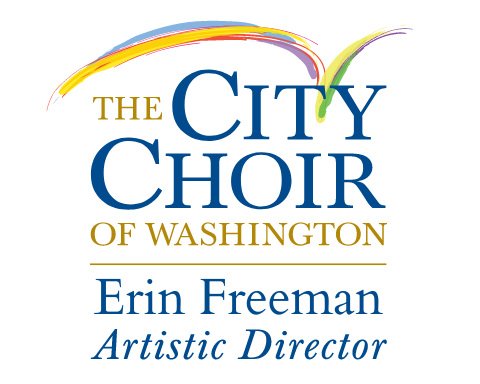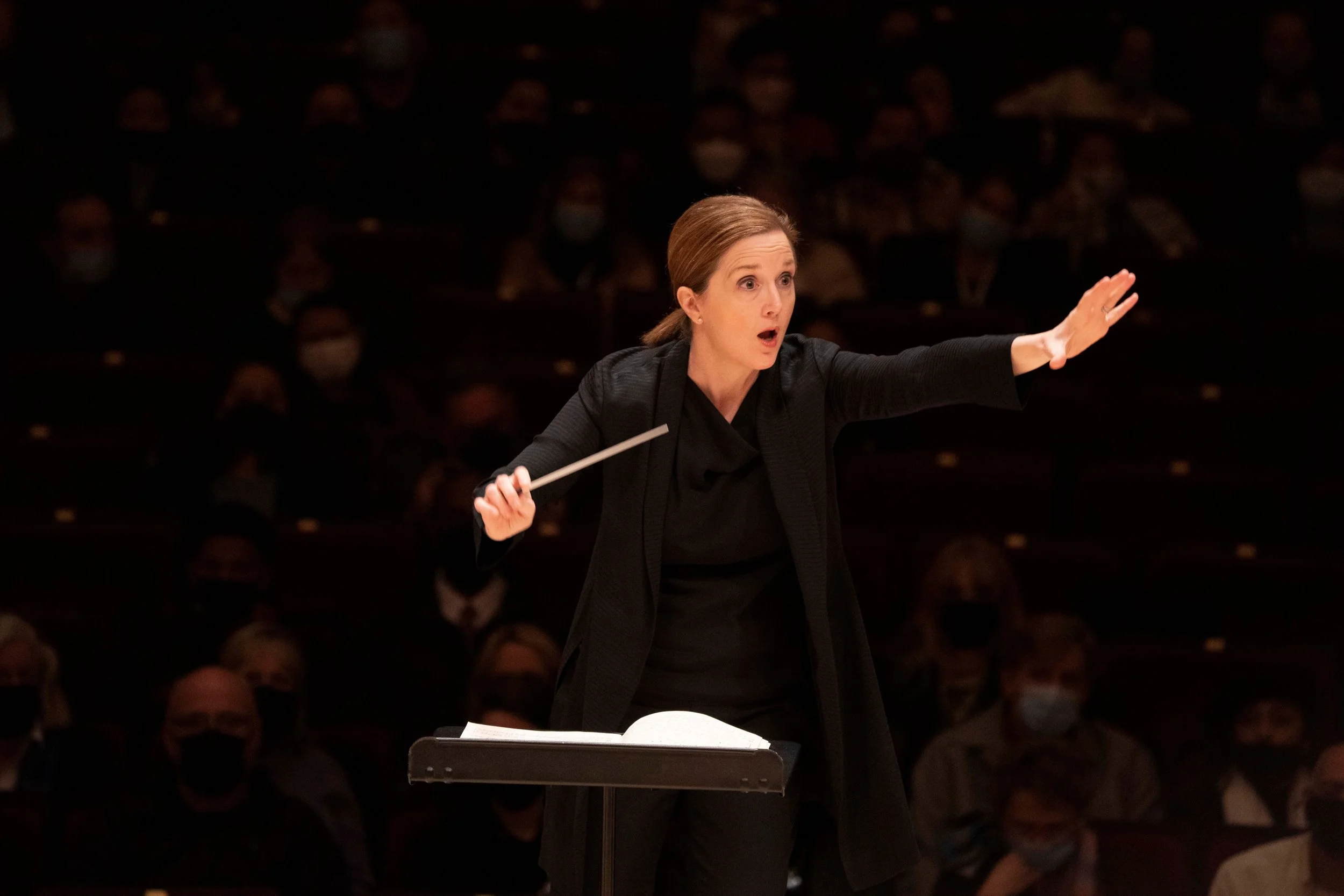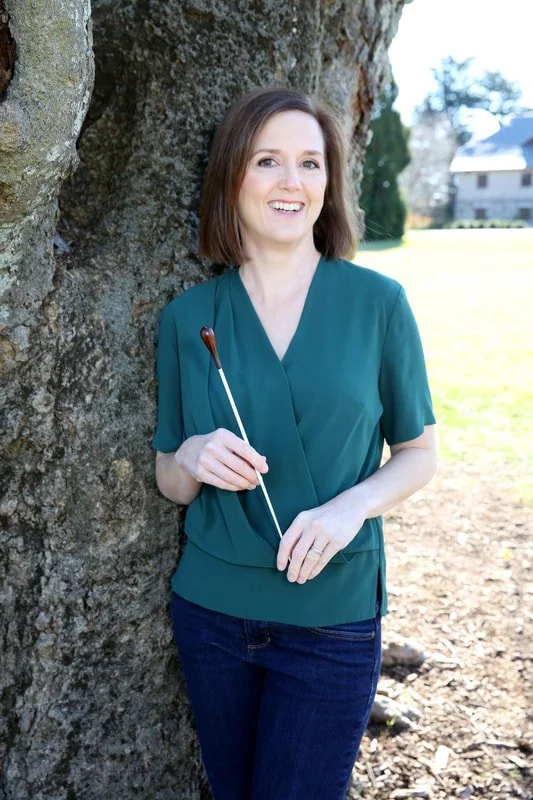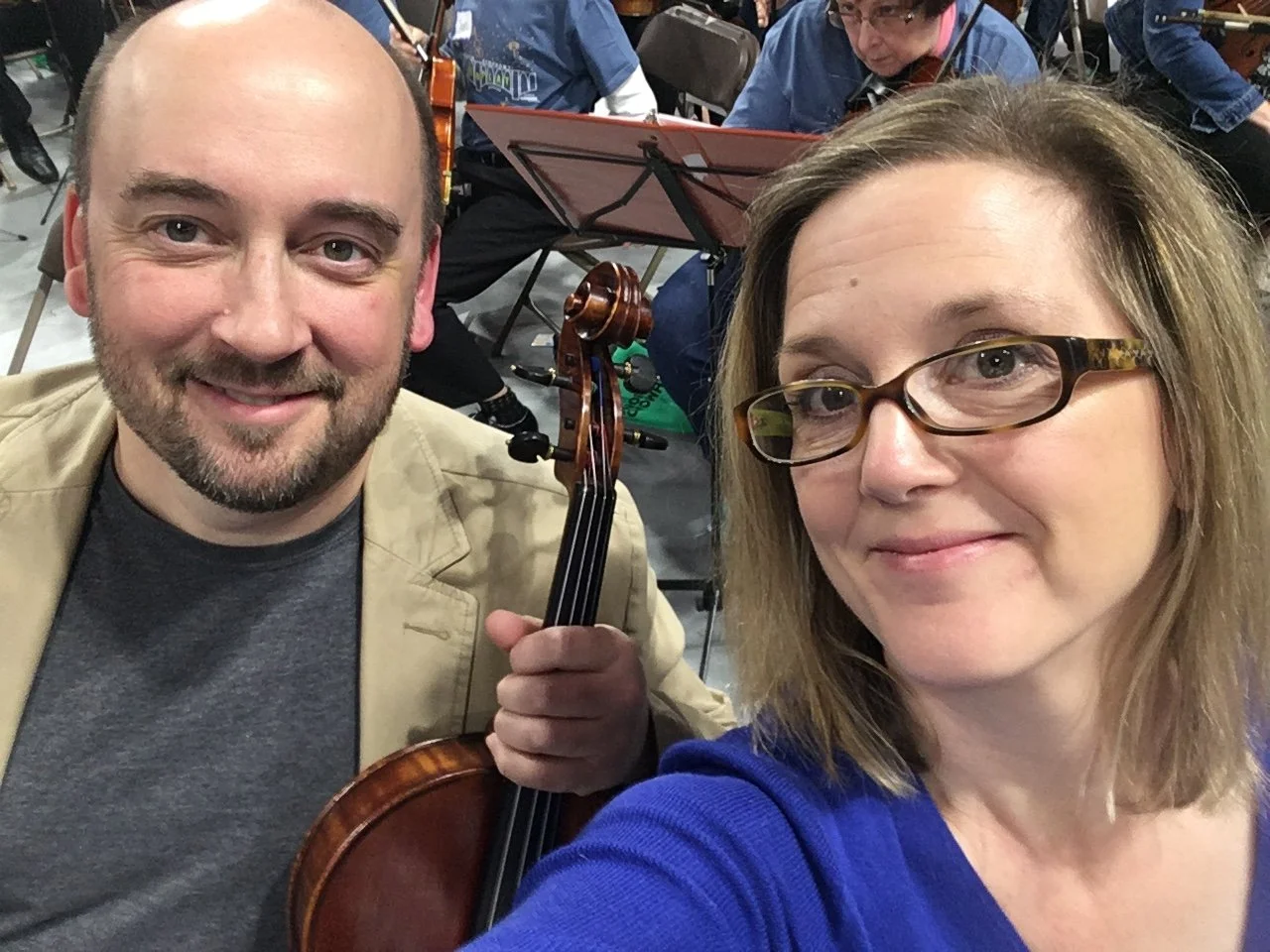Allegro recently interviewed Maestra Erin Freeman on a variety of topics of interest to City Choir’s singers and audiences. Keep reading to discover what we asked her and what she told us.
Allegro: How did music become part of your life?
Erin R. Freeman: Well, there are two stories: one was that when I was around 6, I attended the Atlanta Symphony’s annual Christmas concert (conducted by Robert Shaw) and a performance of Annie, and I knew I had to sing! The other is that I was a talkative, outgoing kind of kid, and a friend of my mom’s suggested that maybe a children’s choir would channel that energy a bit more productively! Ha! Either way, I joined the Atlanta Young Singers of Callanwolde and I was completely hooked.
What led you to choral conducting?
ERF: I always loved the idea of putting people together to accomplish great things, so it was a good fit to be a conductor. And I wanted to be Robert Shaw—truly. But, more specifically, I got to college (Northwestern University) already pretty skilled in music theory and ear training, so I was able to take the basic conducting class two years early. That led to making my way through all of the advanced conducting courses, graduate level theory and history, and the musical theater leadership positions. From there, I attended Boston University for conducting with a choral emphasis. After that, I taught choir and drama, grades 6 through 12, at the Savannah Country Day School in Georgia. When Mr. Shaw died, I decided to double down on my goal to become Mr. Shaw and expand my training. I started adding orchestral work to my portfolio and earned my doctoral degree in orchestral conducting from Peabody. So, I have one foot in choral and one foot in orchestral, and they both inform each other. I teach singers to “bow” their air distribution, and I ask instrumentalists to breathe together and treat their articulation like language.
What were some of the things that drew you to City Choir?
ERF: The chorus’s commitment to the art of perfection and the joy and pride that comes from refining the details together as an ensemble. That totally satisfies my inner geek. And, of course, I had heard of Bob Shafer’s reputation. I knew that, although we are very different personalities, we both care deeply about the singers and the musical details, and we know that the best choruses take care of both!
What is your approach to rehearsals?
ERF: The rehearsal process is one of my favorite parts of being a conductor. My goal is that by the time rehearsal is over we feel like we have become better musicians and have contributed something to the greater good. This means that I and the musicians need to have some idea of the purpose of the rehearsal, and that throughout we need to improve. That seems obvious (“improve”—what’s so unique about that?), but it’s actually counter to what many of us conductors have been taught. Often, we have been trained to run through the piece, find the incorrect places, point them out, say “Don’t do that,” and chastise until things improve. My process is to start with a stripped-down version of the piece, such that the members of the chorus can connect to the music immediately but not be bogged down with all of the details. Then, I constantly add layers of artistry and dig deeper until we are ready. I call this an “additive” approach. It requires that singers trust the process—particularly in more complex pieces. But it creates a more cohesive and precise end result as well as a more productive and positive rehearsal experience for all. Oh . . . and I also involve everyone for the entire rehearsal. No sitting around while others work on their parts! Never!
What are some noteworthy experiences connected to your life in music?
ERF: I’ve been fortunate to be involved in some pretty spectacular musical experiences throughout my life. Conducting Beethoven’s Missa Solemnis for the 40th Anniversary of the Richmond Symphony Chorus is high up on my list. Ask me about that some time! Then there was the time I accidentally conducted Yo-Yo Ma. Or when I conducted Carmina Burana with the ballet on stage, the orchestra in the pit, and the chorus spread out in four corners of the audience. Singing the Mahler Symphony No. 8 with Robert Shaw at the helm was pretty spectacular. Oh, and there was the Elijah in Boston Symphony Hall with Berkshire Choral International. And I started a “Come and Play” event in Richmond that began with an orchestra of 350 and grew to well over 600!
What are some of your other music activities besides being Artistic Director of City Choir?
ERF: In addition to serving City Choir as its second Artistic Director, I’m Artistic Director of Wintergreen Music, a fantastic summer music festival in Wintergreen, Virginia, and am Resident Conductor of Richmond Ballet, the state ballet of Virginia. I also guest conduct. So this year, I’m conducting the Washington Metropolitan Philharmonic, the Detroit Symphony, and the Savannah Philharmonic in various performances.
What are other, non-music interests? Hobbies?
ERF: I like to cook and be in nature. Trail running is the best, and I’m looking forward to exploring the parks around Hollin Hills [my new neighborhood in Alexandria], along the GW Parkway, and (of course!) Rock Creek Park.
Do you want to share anything about your family?
ERF: My husband is Drew Cahoon—he’s a violist and has a business called Cahoon Solutions. He does tech help and temporary staffing for non-profit organizations—specifically those in the arts. And we have two rescue dogs—Quigley (an elderly beagle) and Bruno (a 106-pound great dane/pit bull/unicorn/lap dog).







